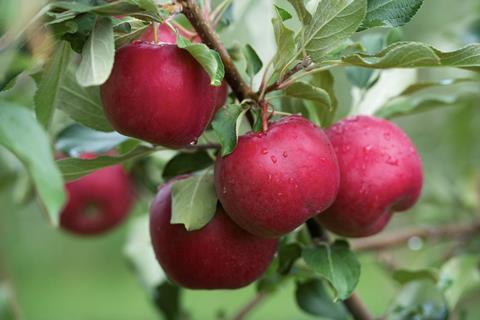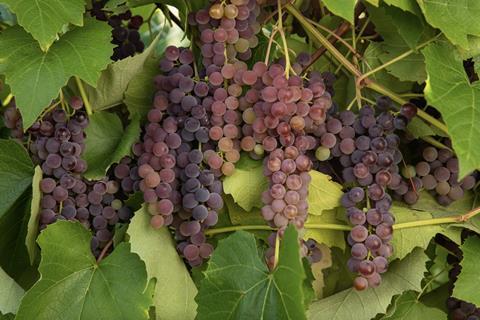Superior Fruit Innovations opens access to exclusive University of Minnesota fruit varieties for growers who sell directly to consumers, marking a shift from traditional wholesale-focused licensing models

The University of Minnesota (U of M) has today (19 November) announced the launch of Superior Fruit Innovations (SFI), a new grower-focused licensing model.
SFI is specifically designed to bring U of M’s new varieties to more growers and fruit lovers.
For the first time, this model opens up exclusive U of M fruit varieties to direct-market growers who sell straight to consumers and local communities rather than through large distributors.
Designed especially for growers of all sizes, SFI provides access to premium apple and table grape varieties, ”celebrated for the superior flavour, texture, and colour that consumers recognise and value in local food systems”, the university stated.
The launch of SFI is the next step in a programme recognised as one of the top apple breeding and genetics research programmes in the US.
The apple breeding programme began at the U of M in the late 1800s with the goal of developing cold hardy apples that are both high quality and high yielding.
It ultimately led to the creation of apple varieties including Honeycrisp, SweeTango, and First Kiss/Rave.
”For more than a century, the university’s fruit breeding programmes have driven hundreds of millions of dollars in economic value for Minnesota growers and beyond,” it said.
”Iconic varieties like Honeycrisp and SweeTango apples redefined consumer expectations and created premium markets that boost local economies and support thousands of jobs across the fruit supply chain.”
U of M also is known as one of the leading grape research programmes in the country, with the goal of developing wine and table grapes to benefit growers in Minnesota and the broader cold climate regions.
Breeders are preparing to launch ”several delicious varieties” of seedless table grapes over the next few years, the university confirmed.
The university noted that it has a legacy of pioneering innovative release models for its fruit varieties.
While these managed varieties have been successful, it commented, the wholesale fruit market is currently facing “serious headwinds”, including downward price trends, rising production costs and oversupply.
In contrast, direct-market growers – who sell through orchards, CSAs, farm stands, and local markets – are more insulated from these pressures and are seen as ideally positioned to capitalise on the university’s core breeding strengths.

“Superior Fruit Innovations is designed to meet this moment, connecting the U of M’s top-tier fruits, developed through years of world-class research, directly with the growers and consumers who value them most,” said Matt Clark, associate professor in the U of M’s Department of Horticultural Science and director of research at the Minnesota Landscape Arboretum.
SFI reflects a foundational land-grant approach to innovation, expanding access to high-quality fruit varieties and supporting the success of a broader, more diverse grower community, the university continued.
By managing the programme internally through the University’s Technology Commercialisation Office, the U of M ensures the varieties reach growers who are ”deeply connected to their local food systems and customers”.
It means that for the first time, varieties bred by the same team that created industry favourites like Honeycrisp apples are available to growers of all sizes, not just large commercial producers.
“The programme is designed to help direct-market growers stand out with fruits that deliver the superior qualities that build customer loyalty,” said Clark.
“Growers can use SFI varieties to diversify their offerings, attract more visitors, and potentially command a premium price.
”Not only that, some of these varieties are ideal for local markets which reduces the challenges of storing or shipping fruit long distances,” he pointed out.
Clark added that the SFI model strengthens relationships, enhances the visibility of the U of M’s breeding programmes, and demonstrates a commitment to practical, real-world impact.
”It is a scalable approach that brings research full circle – from the orchard or vineyard to the communities it serves.”



